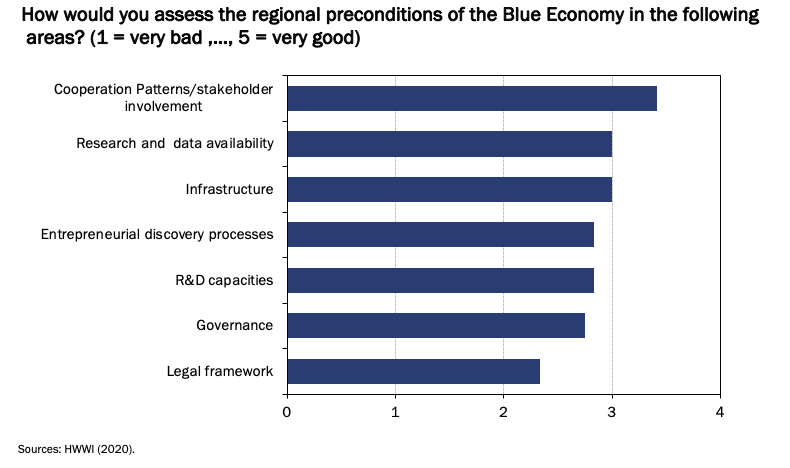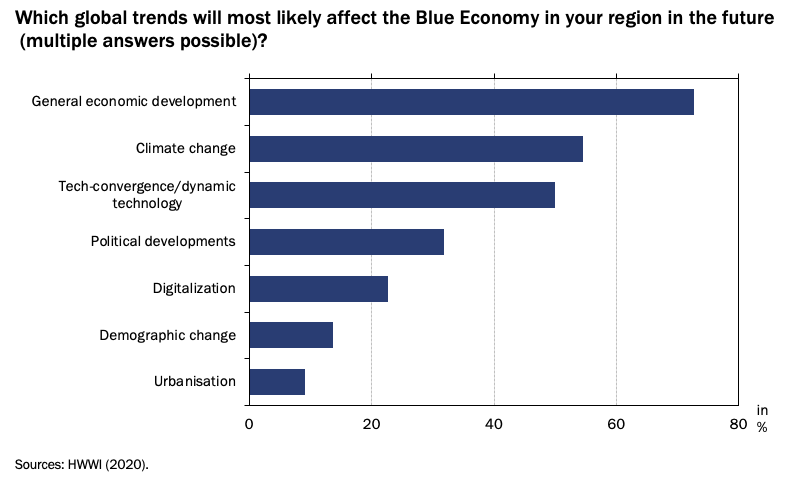Blue Growth Checks: assessing essential components for a successful development of novel Blue Growth solutions
The aim of Group of Activieties 3.4 is to map the Blue Economy in the regions of the demonstration cases and assess the essential components for a successful development and take up of novel Blue Growth solutions. The output will analyse in how far the planned pilot actions can contribute to both, the implementation of the Blue Growth Strategy and the strengthening of regional economic development.
As the Blue Economy as such is not part of official macroeconomic statistics at the regional level, supplementary information was gathered via a questionnaire among Blue Economy experts in the partner regions. The results were collected by Hamburg Institute of International Economics (Hamburgisches WeltWirtschaftsInstitut, HWWI).
The Blue Economy is considered at least moderately important by the experts in all project regions. The majority of jobs of the established sectors of the Blue Economy is located within coastal tourism, maritime transport and ports and warehousing. Among emerging sectors marine research and education, coastal environmental protection and renewable energy are of rising importance.
Apart from the assessment of the economic situation, experts were asked to provide their evaluation on regional Blue Growth strategies and preconditions as well as on prospects and challenges for the future development.
Cooperation patterns and stakeholder involvement as a precondition for further Blue Growth are viewed as rather good, whereas the existing legal framework is evaluated worse.

Figure 1: Assessment of the regional preconditions for Blue Growth
Concerning the future development, experts assess climate change, general economic development and technological development as largest challenges of the Blue Economy, while urbanization and demographic do not play crucial role.

Figure 2: Trends affecting regional Blue Growth
As these aspects of Blue Growth differ between the regions of the case studies, the next steps of the analysis will have a closer look at the regional characteristics and their impact on the regional Blue Economy. The most important findings will be collected in a Blue Growth Checks report. These results in combination with the experiences from the six case studies will serve as an important input for the major output of the project, i.e. Multi-level Governance Agenda on Blue Growth and Spatial Planning in the Baltic Sea Region. To present the results among policymakers and stakeholders at the European level and to collect feedback, HWWI plans to host a Blue Growth Workshop in Brussels in 2021.
Prepared by Andreas Lagemann (Hamburg Institute of International Economics/Hamburgisches WeltWirtschaftsInstitut, HWWI) /September 2020/

